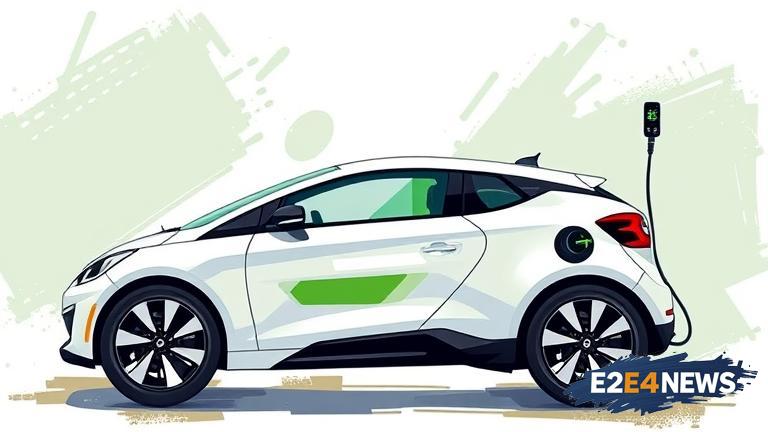The Indian government has announced a comprehensive plan to promote the adoption of electric vehicles (EVs) in the country. The plan includes a range of incentives and initiatives to encourage the use of EVs, including tax breaks, subsidies, and investment in charging infrastructure. The government aims to have at least 30% of new vehicle sales be electric by 2030. To achieve this goal, the government will provide subsidies to manufacturers to produce EVs, as well as to consumers who purchase them. Additionally, the government will invest in the development of charging infrastructure, including the installation of charging stations along highways and in urban areas. The plan also includes measures to promote the use of EVs in public transportation, such as buses and taxis. The government will provide subsidies to state governments to purchase EVs for public transportation. The plan is expected to have a significant impact on the environment, as EVs produce zero emissions and can help reduce air pollution in urban areas. The government also expects the plan to create new job opportunities in the EV manufacturing sector. The plan has been welcomed by the automotive industry, which sees it as a major opportunity for growth. Several major automakers have already announced plans to launch new EV models in India. The government has also announced plans to develop a network of charging corridors along major highways. The corridors will have charging stations at regular intervals, making it possible for EV owners to travel long distances without worrying about running out of charge. The plan is also expected to have a positive impact on the economy, as it will reduce the country’s dependence on fossil fuels and lower emissions. The government has set a target of having at least 50,000 public charging stations in the country by 2025. The plan has been praised by environmentalists, who see it as a major step towards reducing the country’s carbon footprint. The government has also announced plans to develop a national EV policy, which will provide a framework for the development of the EV industry. The policy will include measures to promote the use of EVs, as well as regulations to ensure safety and quality standards. The government has also announced plans to provide training and support to workers in the automotive industry, to help them develop the skills they need to work with EVs. The plan is expected to have a major impact on the country’s transportation sector, and is seen as a key part of the government’s efforts to reduce emissions and promote sustainable development. The government has also announced plans to develop a network of EV testing and certification centers, to ensure that EVs meet safety and quality standards. The plan has been welcomed by consumers, who see it as a major opportunity to reduce their environmental impact and save money on fuel costs. Overall, the government’s plan to promote the adoption of EVs is seen as a major step towards a more sustainable and environmentally-friendly transportation sector.





